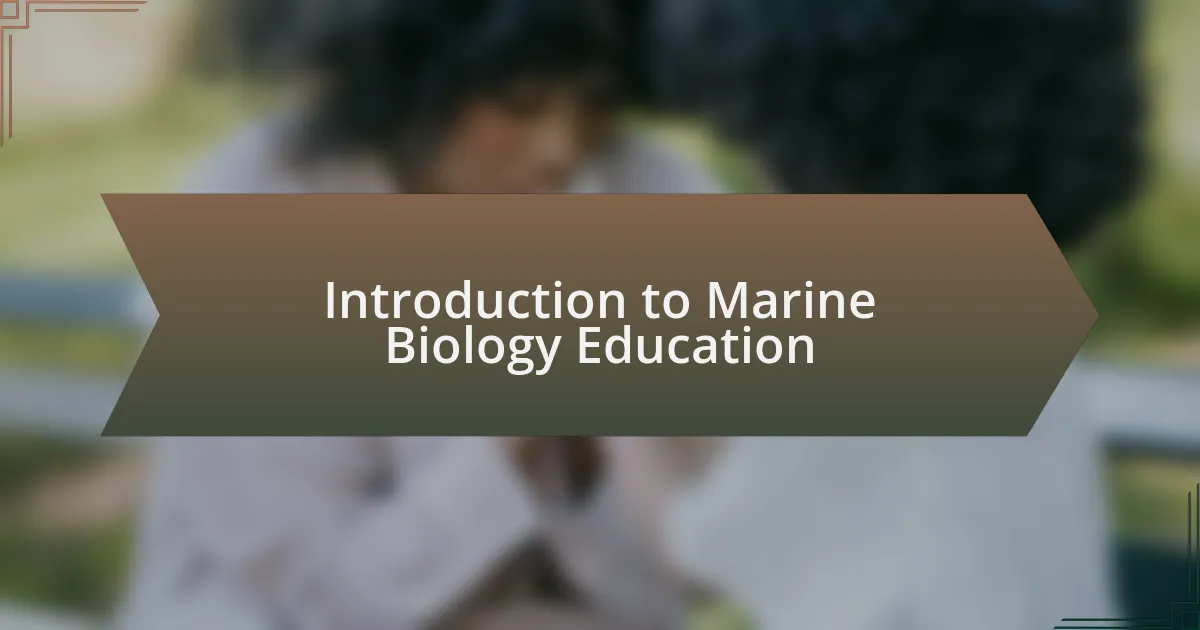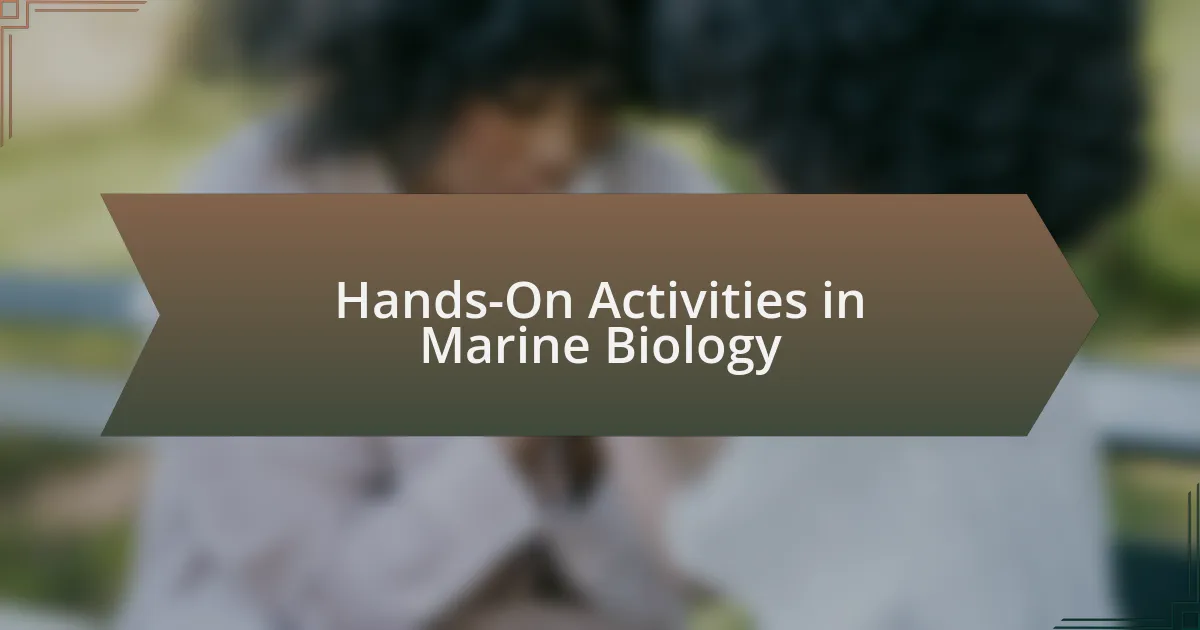Key takeaways:
- Marine biology education fosters a passion for understanding and protecting ocean ecosystems through hands-on experiences.
- Children’s Discovery Centers ignite curiosity and appreciation for science, encouraging teamwork and critical thinking through interactive learning.
- Hands-on activities, such as building mini-ecosystems and participating in beach clean-ups, create lasting connections to nature and environmental stewardship.

Introduction to Marine Biology Education
Marine biology education is an exciting journey that opens a window to the vast, mysterious world beneath the waves. I remember my first dive into this field; it was like peering through a portal into a vibrant universe, brimming with life. Isn’t it amazing to think that every drop of ocean water holds countless organisms, each with its own role in a delicate ecosystem?
As I delved deeper into marine biology, I discovered the profound interconnectedness of life forms in the ocean. This realization often left me in awe—how can tiny plankton support massive whales? Such contrasts inspired me to explore the complexity of marine systems, igniting a passion for understanding and protecting these incredible habitats. Isn’t it fascinating how every creature adapts uniquely to thrive in its environment?
Participating in field studies was a turning point in my education. One memorable trip involved collecting samples by a rocky shore, where the salty breeze danced around us. The excitement was palpable as we unearthed hidden crabs and vibrant starfish, sparking a question in my mind: how many secrets lie undiscovered in the oceans? These experiences not only enriched my knowledge but also deepened my commitment to marine conservation, reminding me that education is not just about learning—it’s about nurturing a relationship with our planet.
Overview of Children’s Discovery Centers
Children’s Discovery Centers serve as vibrant hubs where young minds can explore, learn, and connect with various disciplines through hands-on experiences. Walking into one, I felt a rush of nostalgia, reminiscent of my own childhood curiosity when I first encountered interactive exhibits. Isn’t it wonderful to think that these spaces can ignite a passion for science and discovery in children just as they did for me?
At these centers, children are encouraged to engage with their surroundings in playful yet educational ways. I remember participating in a water-themed workshop, where we examined marine ecosystems using simple tools. How thrilling it was to see the children’s faces light up as they discovered the wonders of life forms they had only read about before! These experiences create lasting memories and foster an early appreciation for the environment.
Moreover, Children’s Discovery Centers often offer collaborative programs that promote teamwork and critical thinking. I once saw a group of kids tackle science experiments, learning how to solve problems together. It made me think about how essential these collaborative skills are for future success. Through such immersive education, children not only gain knowledge but also develop the confidence to explore the world around them.

Hands-On Activities in Marine Biology
Exploring marine biology through hands-on activities sparks a sense of wonder that is hard to replicate in any classroom setting. I vividly recall a day spent building mini-ecosystems in glass containers, complete with sand, water, and small plants. Watching my creation come to life taught me not just about marine habitats, but also about responsibility as I nurtured my little ecosystem for weeks.
One particularly memorable activity involved dissecting squid specimens to learn about their unique anatomy. It was fascinating, yet slightly daunting at first. I remember the mixture of excitement and apprehension as we donned our gloves and prepared for the task. The hands-on experience helped demystify these creatures, turning abstract textbook illustrations into tangible, memorable encounters. Have you ever felt a connection to nature that profoundly shifted your perspective? These activities can have that very effect on children.
Additionally, engaging in beach clean-ups was an eye-opening experience. Not only did we learn about the impact of pollution on marine life, but we also took action to make a difference. I still cherish the sense of camaraderie we built while collecting trash. It was a powerful reminder that our actions matter. How fulfilling it is to see children actively participating in protecting their environment, knowing they’re shaping a healthier future!